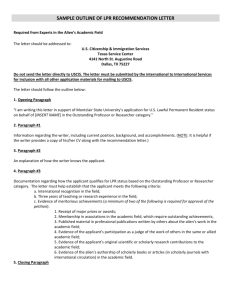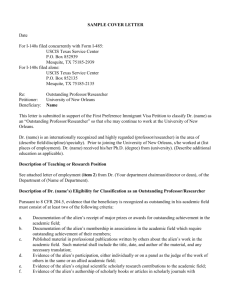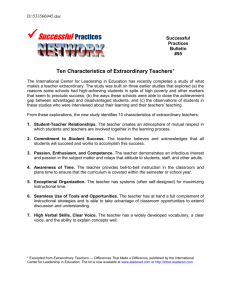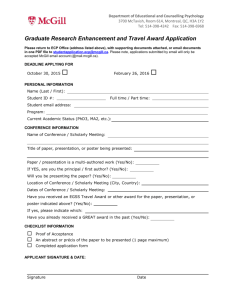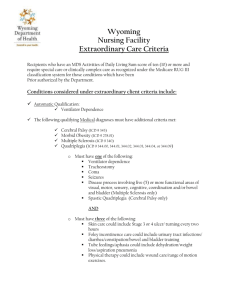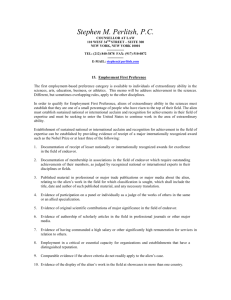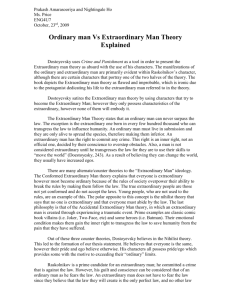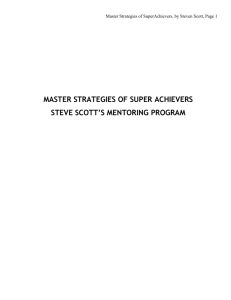EB-1 Visa Requirements:
advertisement
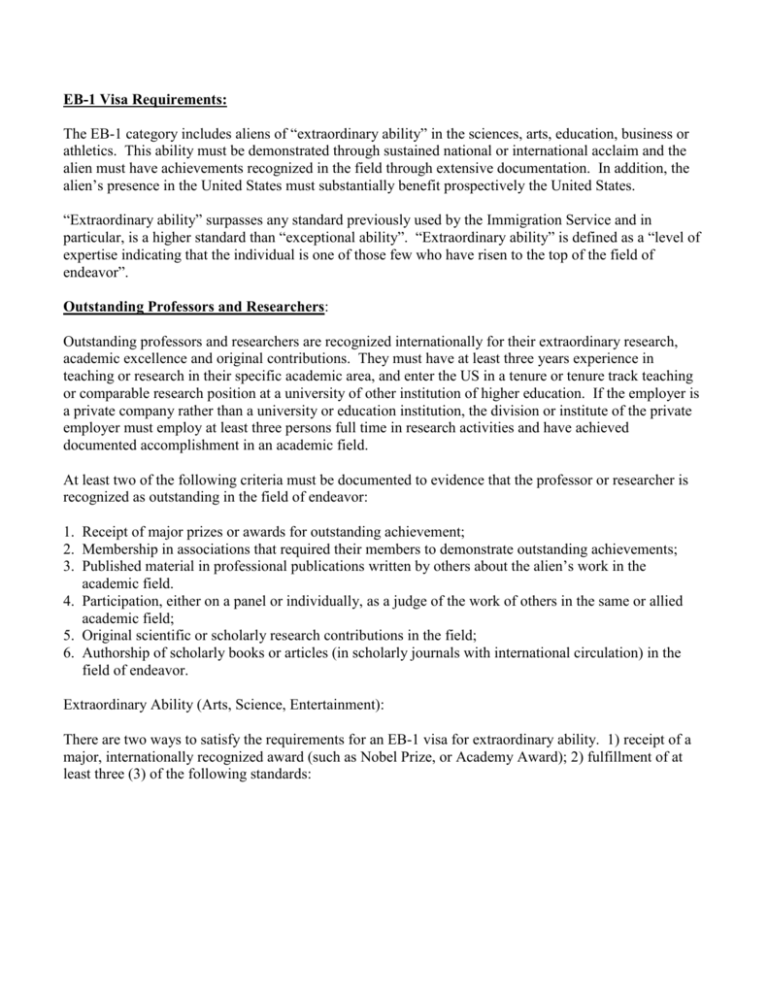
EB-1 Visa Requirements: The EB-1 category includes aliens of “extraordinary ability” in the sciences, arts, education, business or athletics. This ability must be demonstrated through sustained national or international acclaim and the alien must have achievements recognized in the field through extensive documentation. In addition, the alien’s presence in the United States must substantially benefit prospectively the United States. “Extraordinary ability” surpasses any standard previously used by the Immigration Service and in particular, is a higher standard than “exceptional ability”. “Extraordinary ability” is defined as a “level of expertise indicating that the individual is one of those few who have risen to the top of the field of endeavor”. Outstanding Professors and Researchers: Outstanding professors and researchers are recognized internationally for their extraordinary research, academic excellence and original contributions. They must have at least three years experience in teaching or research in their specific academic area, and enter the US in a tenure or tenure track teaching or comparable research position at a university of other institution of higher education. If the employer is a private company rather than a university or education institution, the division or institute of the private employer must employ at least three persons full time in research activities and have achieved documented accomplishment in an academic field. At least two of the following criteria must be documented to evidence that the professor or researcher is recognized as outstanding in the field of endeavor: 1. Receipt of major prizes or awards for outstanding achievement; 2. Membership in associations that required their members to demonstrate outstanding achievements; 3. Published material in professional publications written by others about the alien’s work in the academic field. 4. Participation, either on a panel or individually, as a judge of the work of others in the same or allied academic field; 5. Original scientific or scholarly research contributions in the field; 6. Authorship of scholarly books or articles (in scholarly journals with international circulation) in the field of endeavor. Extraordinary Ability (Arts, Science, Entertainment): There are two ways to satisfy the requirements for an EB-1 visa for extraordinary ability. 1) receipt of a major, internationally recognized award (such as Nobel Prize, or Academy Award); 2) fulfillment of at least three (3) of the following standards: 1. Receipt of a lesser nationally or internationally recognized prize for achievement in your field. This could include a medical fellowship, a Fulbright award, or a Caldecott award. 2. Membership in associations in your field that require "outstanding achievement" of their members. This standard is relatively vague. Associations that are open to all members of a given profession can be considered, but associations that limit membership to only the most accomplished members of the profession are certainly more valuable. 3. Material published about you in major trade publications or other major media. The material must concern your work in the field. Publications could range from journals specific to your field, like The Journal of Otolaryngology, to major newspapers, like The New York Times. You are not limited to print; a story about you on "60 Minutes" might also fulfill this requirement. 4. Serving as a judge of others in your field either individually or on a panel. Sitting on the Nobel Prize Committee would fulfill the requirement, as would participating in the peer review process of a scientific article or acting as a member of a thesis review committee. 5. Original, scientific, scholarly, artistic, athletic, or business-related contributions of major significance in your field. This standard is wide open. Basically, USCIS will base its judgment of your contribution on the letters of support that others in the field submit. So letters from recognized authorities in your field who consider your contributions original and significant will satisfy this requirement. 6. Authorship of scholarly articles in your field. This refers to articles that you wrote concerning your work rather than material written about you by others, as is the case with standard 3 above. Again, the publications can range from major trade journals to mass media. Although the regulations refer specifically to "articles," other forms of publication such as visual media should fulfill this requirement. 7. Display of your work in exhibitions or showcases. The regulations do not mention how prestigious the exhibition must be. 8. Performing a critical or leading role for organizations that have a distinguished reputation. This could be acting as curator for the Metropolitan Museum of Art or serving as an essential researcher for an important laboratory. 9. Commanding a high salary in your field. 10. Commercial success in the performing arts. This can be demonstrated by box office receipts from your films or plays, sales of your record, or selling your video documentary to a network for a notable sum. Satisfying three out of the ten criteria does not guarantee that USCIS will grant you EB-1 classification as an alien of extraordinary ability. USCIS looks for quality as well as quantity. As in so many other aspects of immigration law, comprehensive documentation of your qualifications is very important.
